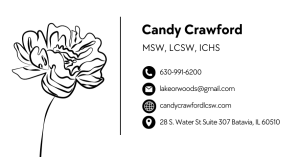Vibrant Days….
Flourishing with Sensory Processing Sensitivity
February 2019
I’m excited to introduce you to Alice Shannon, MFT, who has taught me so much about the trait of high sensitivity and who I love referring people to. Check out her new blog.
Listening to Temperament
A Door of One’s Own
A short time after my parents separated and divorced in the 1960’s my mother moved my brother and I from a large suburban house in San Jose, CA where we were surrounded by two parent, “intact” families to Berkeley where we were not. She sold our old car. From then on we would walk or take the bus everywhere. She also bought two doors. One door, held up on either side by small filing cabinets became her desk, the other, with cinder blocks to support it and foam cut to fit on top became her bed and a couch of sorts in the living room that was now also her bedroom. Evenings after we were in bed she often stayed up late, taking a long hot bath with a book, or dipping into numerous books and writing.
My mother had not always been good at filtering and prioritizing and there were many times in her life when she felt overwhelmed. But in the charmed beginning of that new chapter she had a part time job she loved working in a nearby convalescent home teaching crafts and offering support to residents. She wrote and took on a deep and abiding study of dreams. She would eventually create and write a monthly column for a local paper, “What’s in a Dream”, facilitate dreamwork groups, do individual consults and give talk on dreamwork. The move to Berkeley had a number of doors to a life that suited her as a highly sensitive person.
Psychologist, researcher and best selling author in the field of high sensitivity, Elaine Aron, defines high sensitivity as DOES: having a depth of processing, being easily overstimulated, emotionally responsive/empathic and sensitive to subtle stimuli. She has questionnaires focused specifically on this temperament characteristic, one for children, another for adults.
Sensitivity is a measure of how responsive a person is to the five senses, hearing, sight, taste, touch, smell, and emotional sensitivity. People who are low in sensitivity are minimally or un-reactive these areas. Children who are low in sensitivity can be hard to read. They may seem oblivious to minor changes in their foods, your appearance or their surroundings. They may be very tolerant of being wet or messy, and of loud or chaotic environments. They may miss social cues. Children who are low in sensitivity may not be attuned to their bodies or feelings, impacting communication with caretakers about illness or discomfort. Low sensitivity can make toilet training more challenging when children are not attuned to physical sensations that might prompt them to get to the bathroom or are not bothered by wet or soiled diapers or clothing.
Adults who are low in sensitivity might love foods without many strong preferences or might even be indifferent about food. They can be easy going about sensory issues or, like an absent minded professor, may miss social cues and even their own biological cues such as hunger and physical discomforts as well as nuanced feelings.
Those who are moderate in sensitivity can pick up enough to respond to sensory issues or communicate about them generally without being sensitive enough to be troubled or challenged by their experience. All levels of sensitivity come in numerous variations depending on what a person is sensitive or not sensitive to and their other temperament characteristics.
Those of us who are high in sensitivity are highly reactive in one or more areas. Parents may notice from infancy that their highly sensitive child (HSC) has a hard time with noise and busy environments. HSC’s may be reactive to tags in their clothing, or clothing that is too tight, scratchy, itchy or not soft enough, want their socks lined up just so and complain about the feel of having their hair brushed. HSC’s who are emotionally sensitive are easily affected by mood and may be concerned or stressed if a someone nearby seems sad, or anxious when someone seems irritable or angry. They may be very reactive to changes in voice tone when a parent or other caretaker is frustrated, stern or stressed. Adults in the situation may say they are aren’t yelling but HSC’s often experience even mild upset in a voice as yelling. HSC’s are sometimes prone to feeling anxious or worried.
HSC’s may notice more and feel things more deeply. One of my mother’s many books, Karl Menninger’s, Love Against Hate, seemed to shout at me as a child. It’s title was in script, love, on the pink half of a heart, against hate on the black half of the same heart. It hauntingly highlighted the emotional battle I imagined my parents must have gone through.Adults who are high in sensitivity (HSP’s) tend to think deeply and over attend both internally and externally, children too as the above example illustrates. HSP’s can seem insensitive to others at times when their own sensitivities consume them. HSP’s may notice and feel things more which can lead to feeling overwrought but they also feel positive things more strongly so self care can make a big and worthwhile difference.Temperament as a Door.
Self care is important for everyone and especially for HSP’s who are prone to feeling overwhelmed. Notice your temperament for cues about what works and doesn’t for you. Using temperament as your guide is a benign way to understand personal style without judgement. Be a journalist or a scientist and collect information about who you are, or who your child is, from a neutral perspective. It’s not good or bad information. It’s all good to know. You or your child might find a “fun” event taxing if it’s loud or otherwise overstimulating and you are high in sensitivity. If you go with what you think you or your child should be able to manage and what other people manage it will cost you. If instead you take breaks, leave early, pay attention to self care and how you are feeling, and work at filtering rather than being a sponge throughout your day you will feel like better versions of yourselves.We hear a lot these days about the importance of having a strong physical core. It’s also important to have a strong emotional core. A strong emotional core, or bank to draw from, is built by doing things which refuel us emotionally. A long hot bath or shower might feel restorative, or it might be boring. Cooking or gardening are rejuvenating for some people, chores for others.Playing with legos, time on a trampoline, drawing or a hug might be calming for a child. An activity is calming if you feel changed for the better by it. Afterwards you should feel that your tension or stress level has decreased. The same things don’t work for all children or adults. Experiment to find out what kinds of things are personally refueling or are refueling for your child. Everyone should have a variety of options so that no matter your time, finances, the weather, location or childcare situation there’s always something you can do. It doesn’t have to be big so don’t wait for a perfect time. Stress and anxiety don’t wait for a perfect time! Small right things such as conscious breathing or for children blowing soap bubbles can make a big difference.
The old yoga 4-7-8 breath can be very calming. Exhale completely through your mouth making a whoosh sound. Close your mouth and inhale through your nose for a count of four. Hold your breath for a count of seven. Exhale through your mouth with a whooshing sound for a count of eight. Do this in rounds of four. It’s a great example of something small and portable that can make a big difference.Whenever you feel stressed, anxious or out of sorts, think of it as an emotional thirst and respond with self care. Help your child to build this skill. You don’t need to know why you’re feeling that way and you don’t need to justify it. You feel what you feel. Be as neutral and responsive to your emotional thirst as you would to a physical thirst. When the volume, so to speak, of your emotional discomfort is going up, either because of what’s going on inside of you, or what’s around you, answering back with more self care will keep stress from having the upper hand. To be continued…
Alice Shannon, MFT
I am confident you will love and relate to Brene’s words here: See this Instagram post by @brenebrown.
Don’t miss this beautiful and honest exploration of living as a highly sensitive person. It shows up differently in each person but I never tire of learning how. Part 2 will come next month. Thank you Kristen Bell!
Our trait is lodged in our body. Exercise has a million benefits, let us not miss out on any of them. Exercise Wins: Fit Seniors Can Have Hearts That Look 30 Years Younger.
I love this artist and his songs are only getting more honest and beautiful. (apparently stupid has more definitions than I thought)
I am learning reading the lyrics of songs I love makes all the difference.
Stupid Deep by Jon Bellion
And the love I fought to feel was always free?
What if all the things I’ve done, yeah
Were just attempts at earning love? Yeah
‘Cause the hole inside my heart is stupid deep, stupid deep
And the path I’ve tried to cut was always clear?
Why has life become a plan, yeah
To put some money in my hand?
When the love I really need is stupid cheap, stupid cheap
And the love I fought to feel was always free?
What if all the things I’ve done
Were just attempts at earning love? Yeah
‘Cause the hole inside my heart is stupid deep, oh, stupid deep
And the love I fought to feel was always free?
What if all the things I’ve done (What if all the things I’ve done)
Were just attempts at earning love?
Though the hole inside my heart is stupid deep, oh, stupid deep

